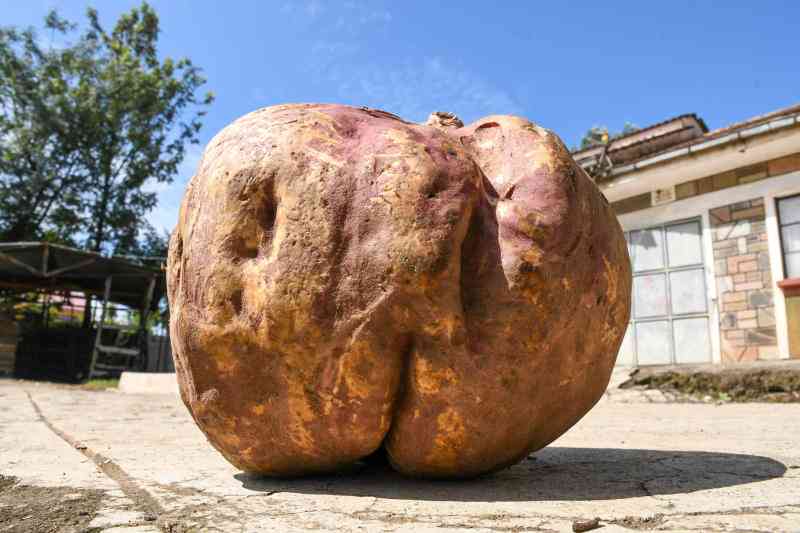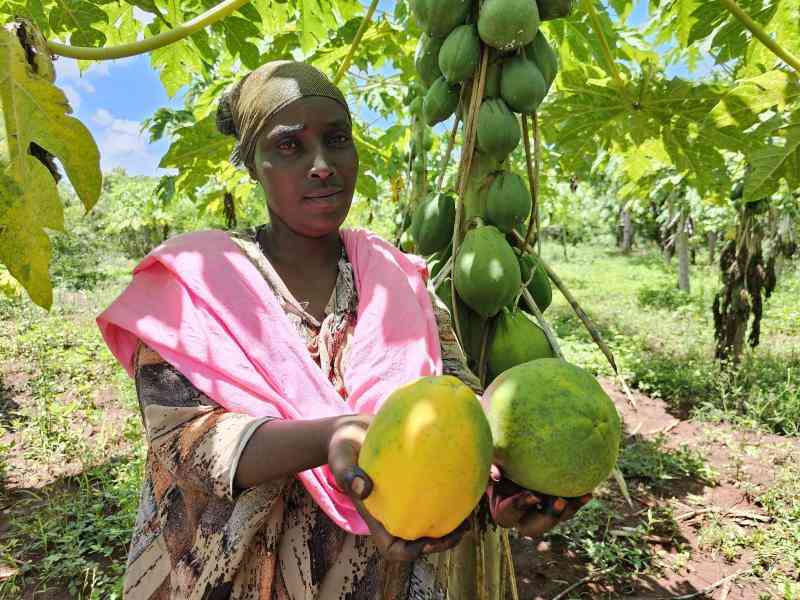Cancer is undoubtedly one of the leading killers in Kenya today.
Despite the risk factors highly related to lifestyle, the cause of various cancers is still not well understood. Just like it is true of lifestyle diseases, we are what we consume.
Let us therefore think organic farming.
Due to the inherent risks that come with the use of various chemicals in food production, the principle of organic farming has been widely exploited. This has been a common feature in production of fresh plant produce. But now, organic farming is fast catching up with livestock production.
Livestock organic farming involves rearing of animals in an environment which inevitably differs from their natural habitat. It strives to enhance the ‘naturalness’ of the way livestock are reared. Aspects of livestock production such as health and performance are optimised by careful attention to the basic principles of livestock husbandry. These practices should result in a good overall level of production, from a lower amount of external inputs such as unnecessary use of chemicals and drugs.
Considerations
To ensure your farm is nearly wholly organic, livestock feed should be sourced within the farm setting. This leads to integration of livestock and crop farming, all these being organic.
To achieve this, the origin of livestock must be considered at inception. Seed stock must be from livestock that originate from animals managed under continuous organic management from the last third of gestation or at hatching. The livestock feed must be produced under organic management and have their total ration comprising agricultural products including pasture, forage, and crops that are organically produced and handled organically.
Only specific non-organic components can be allowed depending on certification. Usually, an organic livestock producer must create and maintain living conditions that accommodate natural behavior and health of the animal. The living conditions must include access to outdoors, shade, shelter, fresh air, direct sunlight and access to pasture for ruminants.
Waste from an organic farm must be managed in a manner that does not contribute to the contamination of crops, soil, or water and optimises recycling of nutrients. To ensure optimum health, organic livestock production practices require the producer to establish preventative health care practices like selecting the appropriate species and type of livestock, providing adequate feed and creating an appropriate environment that minimises stress, disease, and parasites. It also requires administration of vaccines and veterinary biologics and practices that promote animal well being in a manner that minimises pain and stress.
Although organic producers are encouraged to treat animals appropriately by use of antibiotics and other conventional medicines when needed, treated livestock cannot be sold or labelled as organic. Hormones or other drugs for growth promotion are contraindicated in organic production. Record keeping is an integral part of such a system as such records are important for financial management and verification of organic status of animals.
Benefits
Since organic livestock are not given antibiotics, they are naturally less likely to harbor and spread antibiotic resistant bacteria. That makes organic meat, poultry eggs and dairy products both healthier and safer. Organic foods may also reduce exposure to pesticide residues and antibiotic resistant bacteria. Researchers in the US have found that organic chicken and pork appeared to reduce exposure to antibiotic-resistant bacteria.
Since livestock rearing is part of agribusiness, access to new high value markets may also be possible for a certified organic farm. This is because certification is majorly based on the European Union or the United Kingdom specifications. Such are lucrative export markets that if exploited can be rewarding.
Locally, markets selling organic farm products include The Organic Shop in Gigiri, Kalimoni Greens Organic Shop in Karen and Bridges Organic Health Restaurant in the central business district, all in Nairobi. Being that Kenyans pride in quality and value for money, organically produced livestock products will definitely elicit excitement as well as curiosity.
Stay informed. Subscribe to our newsletter
Since organic livestock farming focuses on preventive medicine and naturalness, operating costs such as machines and chemical or drug inputs are reduced.
In this era of climate change, environmental conservation should be a key driver to go organic farming as its benefits are abundant. Organic farming ensures overall health of plants, water animals and soil.
Organic certified land must be free of fertiliser and pesticides for at least the last three years, among other requirements. Once optimisation is achieved, nutrient cycling occurs when nutrients are returned to the soil through manure and compost.
Becoming an organic farmer
To become an organic farmer, one has to acquire certification. Today, there are four main international certifiers in Kenya – the Soil Association (SA), EcoCert International, IMO (Institute for Marketecology) and Bio Suisse. Currently, there are more than 180,000 hectares of land (crop) under organic certification for export markets.
These are multinational organisations with a worldwide presence and recognition by the European Commission. Their standards are based on the EU specifications.
To register, one must apply to the above certifiers who will inspect and ascertain various aspects of the farm. These aspects include the location and surroundings, which should be free of any forms of harmful contaminants such as industrial or quarry fumes and dust.
On farm, the inspection involves soil tests. The soil is checked for heavy metals like lead, mercury or fertiliser residues. The farm’s source of water must be scrutinised for freshness and quality. The water is tested for heavy metals, macrobiotic matter, pesticides among other chemicals. The owner, manager and farm workers are expected to be aware of the organic laws.The owner must not own another enterprise producing similar animals under conventional livestock husbandry.
Seed stock and sources of genetic material must be from organic establishments. For production of animal feeds, seed and seed treatments must be organic and if unavailable, conventional seeds can be used. The seed must however not be GMO or chemically treated. Farm inputs used in production must be derived from organic production, natural or naturally derived substances and low solubility mineral fertiliser.
Documentation in terms of good record keeping is a requirement for certification. The inspecting firm in most cases must be furnished with a map of the farm indicating the location in case the inspector wants to visit the enterprise without notice. The farm storage facility is also liable for inspection. Finally, packaging and labeling of the produce must meet organic standards to avoid contamination.Once all this is achieved, registration committees approve the registration and the farm is issued with an international number and later organic farming certificate is issued. The certificate is thereafter required to be renewed. Why not be an organic farmer to feed a healthier society?
- The writer is a veterinarian surgeon based at the University of Nairobi
 The Standard Group Plc is a
multi-media organization with investments in media platforms spanning newspaper
print operations, television, radio broadcasting, digital and online services. The
Standard Group is recognized as a leading multi-media house in Kenya with a key
influence in matters of national and international interest.
The Standard Group Plc is a
multi-media organization with investments in media platforms spanning newspaper
print operations, television, radio broadcasting, digital and online services. The
Standard Group is recognized as a leading multi-media house in Kenya with a key
influence in matters of national and international interest.
 The Standard Group Plc is a
multi-media organization with investments in media platforms spanning newspaper
print operations, television, radio broadcasting, digital and online services. The
Standard Group is recognized as a leading multi-media house in Kenya with a key
influence in matters of national and international interest.
The Standard Group Plc is a
multi-media organization with investments in media platforms spanning newspaper
print operations, television, radio broadcasting, digital and online services. The
Standard Group is recognized as a leading multi-media house in Kenya with a key
influence in matters of national and international interest.







